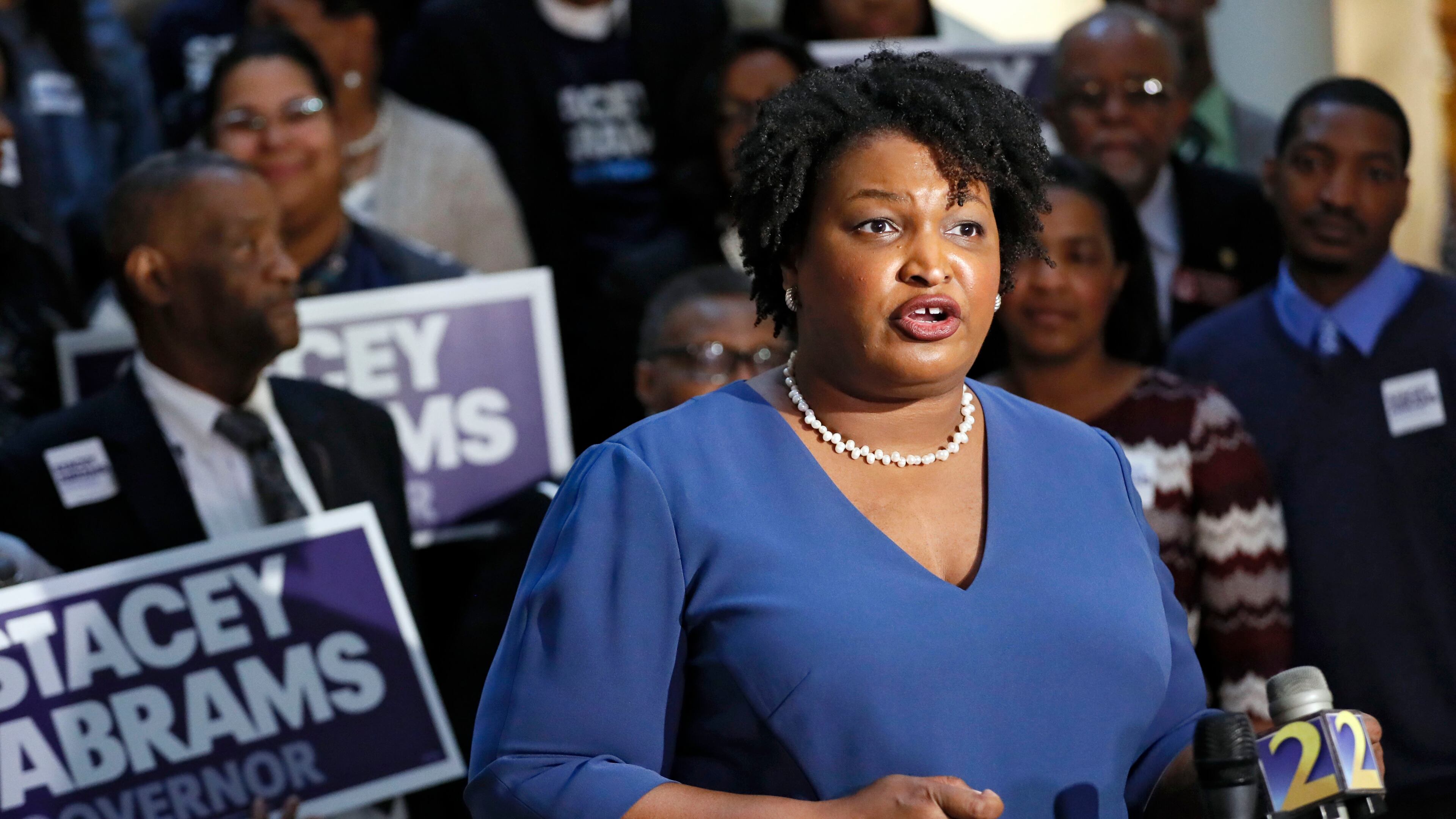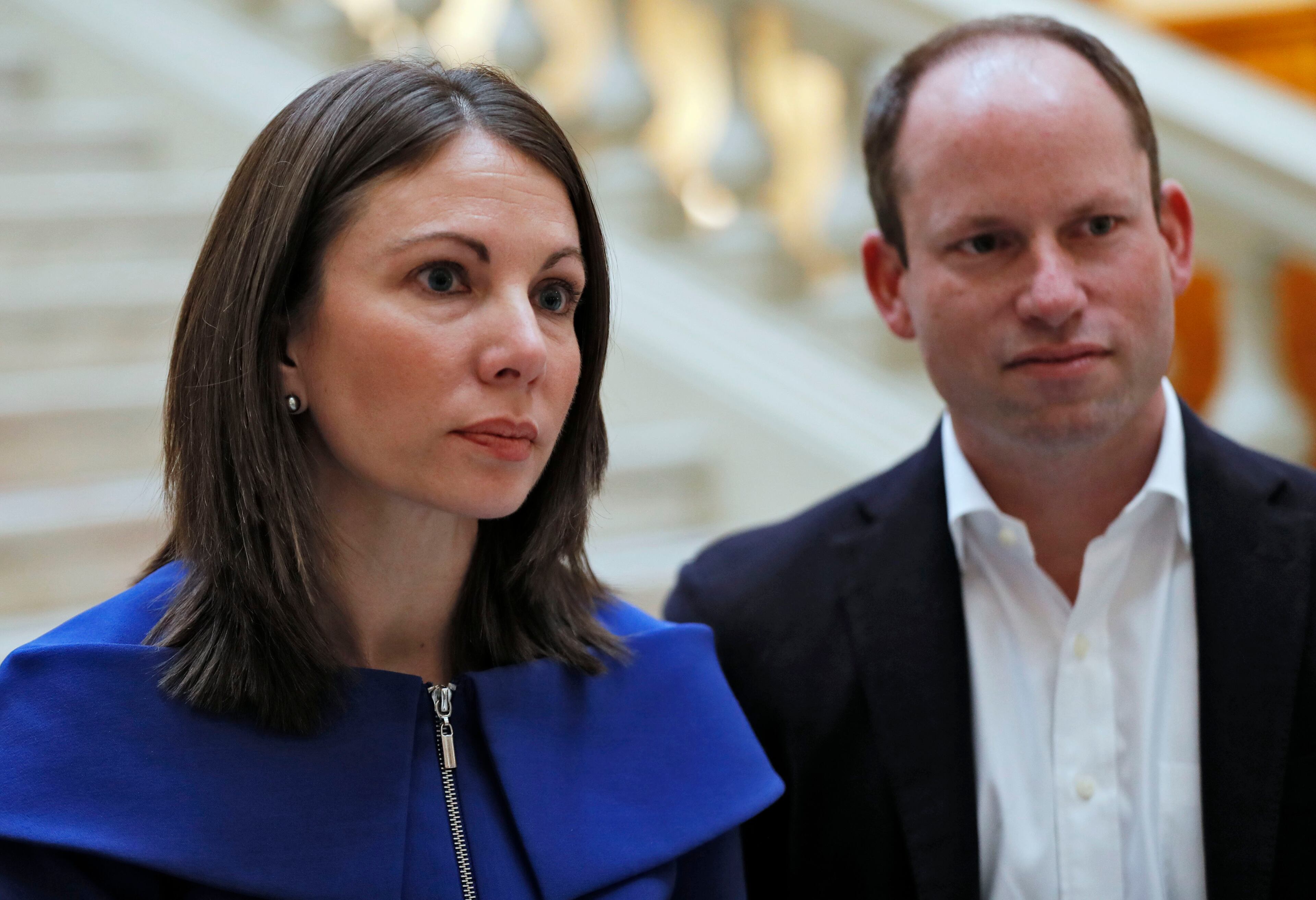If history is a guide, Stacey Abrams’ financial troubles may not matter

Stacey Abrams, one of two Democratic candidates for governor, has been forced to reveal a set of financial weaknesses. The tax attorney owes the IRS a sum exceeding $50,000 and has a good deal of credit card and college debt besides.
Abrams also has had business dealings with the state that she hadn’t made clear to Democratic colleagues in the state Capitol who had elected her House minority leader time and again.
"Learning how to navigate the competing financial priorities in our life is a skill we often learn by trial and error, not through training," Abrams wrote last month, in what now seems like an anticipatory confession.
Her financial troubles are complications, not disqualifications. Not these days.
For proof, we need only look to the autumn of 2010, which became an eye-opening season of wonder for Georgia voters.
That’s when they discovered that Nathan Deal, a former congressman just elected as the Republican nominee for governor, was in dire financial straits.
A failed, high-end sporting goods store had sent a daughter and son-in-law spinning into bankruptcy. Deal and his wife lost $2 million in the venture, and were on the hook for a $2.1 million loan that would come due early the next year.
The Republican nominee had put his home up for sale. When Deal finally fulfilled a pledge to release his federal tax returns, voters learned that the nominee’s federal income taxes amounted to just 2 percent of his income in 2006 and 2007. Deal wouldn’t explain why.
“I have paid the taxes that the law requires of me,” the candidate said during one debate. “We did have substantial losses because my wife and I decided to … help [our] child.”
All this was on top of news that Deal and a partner had operated a salvage yard in Gainesville that for nearly 20 years enjoyed a no-bid agreement with the state to provide space for inspections of rebuilt vehicles.
And yet Deal coasted to victory over former Gov. Roy Barnes, a Democrat of proven experience whose financial paperwork was in exquisite order.
In 2010, being Republican mattered more than maintaining a balanced checkbook. Abrams is about to test whether the same standards apply in 2018, first to a Democrat and then – should she win the nomination – to an African-American woman in a general election.
Like Deal, Abrams points to family demands as a primary cause of her dilemma. Hurricane Katrina delivered a heavy blow to her Mississippi parents in 2005. “While delaying tax payments wasn’t my smartest move, it allowed me to take care of the parents who’d sacrificed so much for me and my siblings,” Abrams wrote in that same February article.
The more immediate problem for Abrams may be that she has surprised her supporters – and her former colleagues in the House.
Last month, a leaked memo to financial backers written by Abrams campaign manager Lauren Groh-Wargo made mention of “an IRS lien in Abram’s past” — but that was a reference to an argument with the tax man she settled in 2010, when she named her parents as financial dependents.
The February memo carried no hint of Abram’s current $54,000 debt to the IRS, which she is now addressing through a payment plan. And in her last campaign finance statement, Abrams disclosed a $50,000 personal loan she has made to her own campaign, which somewhat undercuts claims of family hardship.

Earlier this week, the Journal-Constitution's Dan Klepal reported that Abrams had held a minority stake in a financial services company that contracted with the state while she served in the General Assembly.
Again, it was the surprise that mattered — and allowed her Democratic primary rival, former state lawmaker Stacey Evans, to strike.
“No one in the Democratic caucus had any reason to think there were business dealings between her and the governor when she was negotiating on our behalf,” Evans said. “I think we should have been told that, and we weren’t.”
Abrams was the presumed Democratic frontrunner when she qualified for the Democratic primary earlier this month, and there’s no reason to think that will immediately change – for two reasons.
First, the Great Recession has in fact changed how we evaluate the financial acumen of political candidates. Pristine contenders have become as rare as an unbroken bracket in this year’s March Madness.
"The fact that a candidate can relate to the lives of the 99 percent is a plus," Eric Robertson, a former union activist and close Abrams ally, wrote in a Daily Kos piece published Monday. I heard the same words spoken by many a bankrupt Republican in 2010, trying to explain why he or she remained viable.
This is not a universal opinion.
Supporters of Stacey Evans argue that Abrams’ financial missteps jeopardize her viability. Bobby Kahn, the former chief of staff to Governor Barnes, is backing Evans – and is a paid consultant involved in her media campaign.
He hears echos of the 2010 campaign and Nathan Deal’s financial situation, but insisted he was not speaking for the Evans campaign. “There are a lot of parallels,” Kahn said. “The financing was a mess. The self-dealing and conflicts of interest were and are there for both of them. He had debts, she has debts. I believe it will matter in the primary and the general election.”
Kahn thinks President Donald Trump and his refusal to come clean about his sources of income, or even to divest himself of his business interests in traditional fashion, have made voters more sensitive to the issue. “Especially Democrats,” he said.
Kahn is likely wrong, and right, too.
November 2010 was a second mid-term election for President Barack Obama. Georgia Republicans were a polarized and activated group. The “R” beside Deal’s name overrode any misgivings over the state of his finances.
One suspects that Georgia Democrats, in their furor over Trump, may be in a similar state this year. In that case, absent a big push by Evans in the coming weeks, Abram’s emphasis on ideology and history – the nation has never elected a black woman as governor — could carry her through the primary.
But should the tax lawyer make it to a general election, Abram’s financial missteps would indeed be used as an unforgiving hammer against her. That requires no guesswork.
Ideology has pushed us deep into the Age of Moral Relativism.
Republicans who ignored Deal’s problems in 2010 would discover that financial responsibility is a weightier issue this November, especially if the opposition were both Democrat and, perhaps, black.
And Democrats outraged by Deal’s insolvency eight years ago would suddenly discover empathy for a candidate under financial stress.
It’s what makes the coming season so uncomfortable, and interesting.

